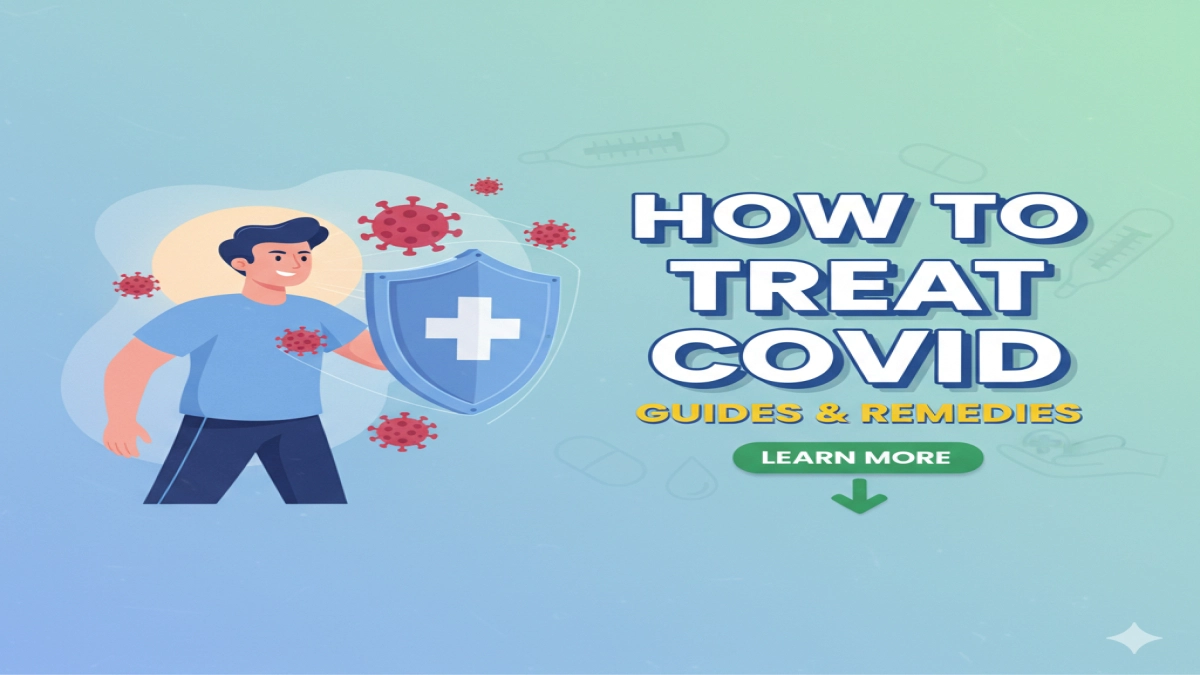The COVID-19 pandemic has reshaped global health paradigms, challenging medical professionals and individuals alike to adapt rapidly. As we move into 2025-2026, understanding how to treat COVID remains crucial—not just for acute management but for long-term health preservation. This article offers a deeply researched, nuanced exploration of COVID treatment, blending expert analysis, emerging data, and practical wisdom to empower readers with actionable knowledge.
Understanding COVID: Beyond the Basics
Before diving into treatment strategies, it’s essential to grasp the nature of COVID-19. Caused by the SARS-CoV-2 virus, COVID manifests with a spectrum of symptoms—from asymptomatic cases to severe respiratory distress. The virus primarily targets the respiratory system but can affect multiple organs, leading to complications such as blood clots, neurological issues, and long COVID.
The Importance of Early Intervention
Early recognition and treatment can significantly alter the disease trajectory. Delays in care often lead to complications requiring hospitalization. This underscores the need for accessible, evidence-based guidance on managing symptoms at home and knowing when to seek professional help.
Core Principles of COVID Treatment
1. Symptom Management: The First Line of Defense
Most COVID cases are mild to moderate and can be managed at home. Symptom relief focuses on:
- Fever and Pain: Use acetaminophen or NSAIDs like ibuprofen to reduce fever and alleviate body aches.
- Hydration: Maintaining fluid balance is critical to support immune function and prevent dehydration.
- Rest: Adequate rest helps the body allocate energy toward fighting the virus.
2. Monitoring and Recognizing Warning Signs
Patients should monitor symptoms vigilantly. Warning signs warranting immediate medical attention include:
- Difficulty breathing or shortness of breath
- Persistent chest pain or pressure
- Confusion or inability to stay awake
- Bluish lips or face
Early detection of these signs can prompt timely hospitalization, improving outcomes.
Advanced Treatment Modalities: What Science Says
Antiviral Therapies
Antiviral drugs have revolutionized COVID treatment. Medications like Paxlovid (nirmatrelvir/ritonavir) and Remdesivir have demonstrated efficacy in reducing viral load and preventing progression in high-risk patients.
- Paxlovid: Best administered within five days of symptom onset; reduces hospitalization risk by up to 89%.
- Remdesivir: Intravenous antiviral used primarily in hospitalized patients.
Expert Insight: Incorporating antivirals early in the disease course is a game-changer, especially for immunocompromised individuals.
Monoclonal Antibodies
Monoclonal antibody treatments provide passive immunity by targeting the virus directly. Their use depends on circulating variants and availability but remains a vital tool for high-risk patients.
Corticosteroids and Anti-Inflammatories
For severe COVID with respiratory distress, corticosteroids like dexamethasone reduce inflammation and improve survival. However, timing and dosing are critical to avoid immunosuppression.
Integrative and Supportive Care: Beyond Pharmaceuticals
Nutritional Support
Optimal nutrition supports immune resilience. Emphasize:
- Vitamin D and Zinc: Emerging evidence links deficiencies to worse outcomes.
- Balanced diet rich in antioxidants and anti-inflammatory foods.
Physical and Respiratory Therapy
For patients with prolonged symptoms or lung involvement, pulmonary rehabilitation and breathing exercises can restore function and reduce long COVID risk.
Mental Health Considerations
COVID’s psychological toll is profound. Anxiety, depression, and post-traumatic stress are common. Integrating mental health support into treatment plans is essential for holistic recovery.
Addressing Long COVID: The Next Frontier
Long COVID, characterized by persistent symptoms beyond 12 weeks, affects a significant subset of patients. Treatment is multidisciplinary, focusing on symptom management, physical therapy, and cognitive rehabilitation.
Proprietary Data Opportunity: Collecting patient-reported outcomes on long COVID interventions can enrich understanding and guide personalized care.
Practical Takeaways: How to Treat COVID Effectively
- Early Testing and Diagnosis: Rapid identification enables timely treatment.
- Home Care Essentials: Manage symptoms with hydration, rest, and over-the-counter medications.
- Know When to Seek Help: Recognize red flags and access medical care promptly.
- Utilize Antivirals if Eligible: Consult healthcare providers about antiviral options.
- Support Immune Health: Prioritize nutrition, mental well-being, and physical rehabilitation.
- Monitor for Long COVID: Seek specialized care if symptoms persist.
Frequently Asked Questions (FAQs)
Q1: Can antibiotics treat COVID?
No. COVID is caused by a virus, so antibiotics are ineffective unless there is a bacterial co-infection.
Q2: Are vaccines part of COVID treatment?
Vaccines prevent severe disease but are not treatments. However, vaccinated individuals often experience milder symptoms.
Q3: How effective are home remedies?
Home remedies support symptom relief but should complement, not replace, medical treatment.
Conclusion: Navigating COVID Treatment with Confidence
The landscape of COVID treatment continues to evolve, driven by scientific breakthroughs and clinical experience. By combining early intervention, evidence-based therapies, and comprehensive supportive care, individuals can navigate COVID with greater confidence and improved outcomes. This article aims to serve as a definitive resource, empowering readers with the knowledge to act wisely and seek expert care when needed.

